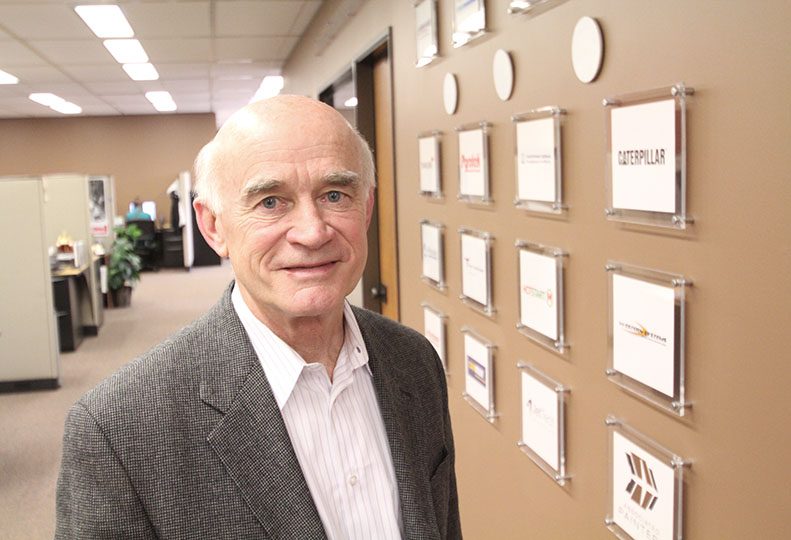
Home » Retired GSI CEO Rich Hadley to lead statewide initiative
Retired GSI CEO Rich Hadley to lead statewide initiative
Business association hopes to connect chambers, EDCs

July 3, 2014
Rich Hadley, who retired as Greater Spokane Incorporated’s CEO just two months ago, has agreed to head up a statewide initiative aimed at helping the Olympia-based Association of Washington Business forge closer ties with local chambers of commerce and economic development councils.
“We have an opportunity to go out and get the employer community together to talk about issues,” says Kris Johnson, president of the AWB. “It’s an untapped market, coordinating with chambers and economic development councils to advocate, educate, and activate the employer community on issues here in Olympia.”
Hadley says he decided to become part of the program because it fits with his experience; he’s worked with chambers and on economic development for 38 years.
“I have a good background for this,” Hadley says. “And although I did retire from Greater Spokane Incorporated, I didn’t retire from everything in my life, and this is one of the things that, on a part-time basis, fits me really well.”
Hadley will continue to live in Spokane and work from home, and also will be traveling around the state to meet with local organizations, he says.
Johnson says Hadley’s experience as a community builder made him the top choice for the position.
“We have an opportunity to partner with someone who’s been building coalitions and avenues for 35-plus years,” Johnson says.
Johnson was on the staff of Greater Spokane Incorporated under Hadley in the mid-1990s. He became president of the AWB at the beginning of this year, replacing Don Brunell, who retired from the position after 28 years. Johnson started at the organization in 2010 as the vice president of operations.
The initiative that Hadley will be leading is aimed at strengthening the relationship between local businesses and the legislative happenings in Olympia, Johnson says.
“Part of our goal is this will help us have a better understanding of local issues as they come up,” he says. “It also gives us the opportunity to build groups of champions on issues, like education and transportation; folks that can come over to Olympia and advocate for their community on local issues. It’s a chance for us to get organized, get collected, and be more aligned when it comes to Olympia.”
Hadley says that connecting local chambers and councils with AWB and the legislature is important because the chambers have close ties to local businesses.
“It became obvious that local chambers throughout the state have their feet on the ground where business is being done, and being able to mobilize them effectively will be important,” he says.
The program is still under construction, he says, and the AWB still is formulating some of its major objectives.
“Certainly part of it is to increase the number of chambers that are active in legislative affairs and have a stronger and deeper collaboration with those chambers, AWB, and other business advocacy organizations,” Hadley says.
Johnson says the AWB is in the process of planning the initiative, and while there’s no concrete timeline, he says the goal is to “have it up and operational as soon as we can.”
The organization hopes to build partnerships with the roughly 200 chambers and economic councils across the state, he says. The initiative will function as an ongoing conversation, he says, rather than through set meetings or groups.
“It’s less about being an event, and more about being an activity,” Johnson says. “It’s an ongoing strategic effort.”
The AWB was formed in 1904, and currently has about 30 employees. It represents more than 8,100 members, with member businesses ranging in size from less than 10 employees to thousands of workers. The organization serves as the state’s chamber of commerce and as a representative association for manufacturing and technology businesses.
Latest News Government
Related Articles
Related Products
Related Events



![Brad head shot[1] web](https://www.spokanejournal.com/ext/resources/2025/03/10/thumb/Brad-Head-Shot[1]_web.jpg?1741642753)
